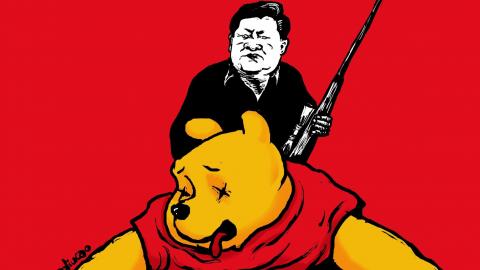How China Lost Central Europe

As long as the Sino-CEE relationship was ruled by pragmatism, relations continued to develop during regular negotiations. Washington was sceptical and the EU was just an observer in the process, while some Western European diplomats expressed concern about a potential Chinese Trojan horse emerging in the region, but this has not materialised.
Yet today, pragmatism and the economy have been replaced by security and values - and the new reality is forcing a rethink of the old policy.
Chinese President Xi Jinping (L) and Czech President Milos Zeman (R) during Czech-Chinese Economic Discussion Forum in Prague, Czech Republic, 30 March 2016. EPA/FILIP SINGER Fraying of ties
Except for Budapest, in all other Central European capitals the principle approach towards China today is limited trust, or even anger.
The turnaround moment was the 2021 spat between Vilnius and Beijing over the opening of a new Taiwan trade office in the Lithuanian capital. The open attack on a small EU member state as well as on the EU 's single market led to an increase of suspiciousness across the Old Continent.
After the incident, "relations with China begun to deteriorate fast," says Justyna Szczudlik, a leading China expert with the Polish Institute of International Affairs (PISM).
Around the same time, the EU introduced sanctions against four Chinese officials in response to human rights violations against ethnic Uighurs in Xinjiang province, which some Europeans and Americans have labelled as genocide. China responded with its own sanctions against five Members of the European Parliament.
Then Lithuania departed the 17+1 scheme in 2021, to be followed by Latvia and Estonia on August 11 in a show of Baltic solidarity. The remaining...
- Log in to post comments









